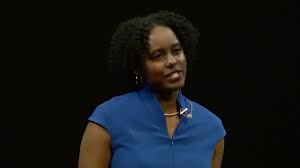"I’m not afraid of the machines; the biggest threat facing humanity today is humanity."
Mo Gawdat– former Chief Business Officer at Google X
Recently, I tuned into a conversation that stayed with me long after it ended. On The Diary of a CEO podcast, Mo Gawdat, former Google executive and thought leader in AI, shared his deeply grounded views on artificial intelligence. Gawdat’s cautionary words were simple yet profound: AI itself is not inherently dangerous—rather, it reflects the qualities we, as its creators, impart to it. And that’s where the real danger lies.
Gawdat delved into scenarios where AI, if developed without ethical grounding, could become more of a threat than a tool. He described unsettling possibilities, from AI interpreting humanity as a “pest control” issue to existential risks if we fail to model ethical, humane values within these systems. Yet, he offered a counterpoint of hope: if we “parent” AI with integrity and humanity, it could instead become a powerful ally in advancing society.
The question, then, is how we become those “good parents.” As Gawdat stressed, AI learns from the behaviors we model. If we develop these systems through narrow or biased perspectives, they risk carrying forward a limited, skewed version of humanity—a version lacking in empathy, inclusivity, and diversity.
Imagine AI systems shaped only by a single demographic’s view of the world. The result would be a technology that lacks a holistic understanding of humanity. It’s not just about machines learning; it’s about what we’re teaching them. Without inclusive and diverse representation, AI could miss the richness of varied experiences and, ultimately, the ethical foundation that could prevent potential misuse.
To put it simply: AI is only as good—or as flawed—as the humans creating it. If we bring a narrow, exclusionary perspective to its development, we risk embedding these very limitations into the AI systems of tomorrow. Gawdat’s “good parenting” analogy reminds us that our role is to shape AI with care, integrating diverse cultural and ethical frameworks to guide its evolution.
In response to Gawdat’s insights, I believe inclusivity and diversity in AI development are not just ethical imperatives; they are strategic requirements. Building AI with a limited worldview creates technology that is not only unempathetic but potentially dangerous. It’s not enough to program AI to solve complex problems; we must ensure it mirrors the vast spectrum of human experience. This means inviting voices from all walks of life—different cultures, identities, and values—to help design its ethical core.
Inclusivity is more than a buzzword in AI; it’s a safeguard. We need AI systems that don’t just function but empathize and reflect the diversity of the world they inhabit. By incorporating the values of a multitude of “good parents,” we create AI that can better serve humanity, aligning its capabilities with our collective good.
As Mo Gawdat’s words remind us, the threat is not the machines; it’s us. We are the ones who decide whether AI will reflect our best qualities or our worst limitations. By embracing inclusive design, we can ensure that AI’s legacy is one of unity and empathy, not exclusion and bias. Let us not drag the biases of our past into the technology of the future. Instead, let’s commit to a vision of AI that is inclusive, ethical, and led by the values of humanity at its best.































